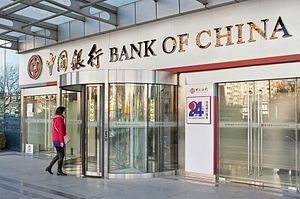The last surge in growth in China, taking place in the wake of the Global Financial Crisis, was fueled by risky lending and high levels of investment. The fallout from that lending was high debt, often nonperforming loans, and slowing growth. At present, China’s public and private debt-to-GDP ratio weighs in at 232 percent, higher than in most countries at the same stage of development. Rising debt presents a threat to China’s debt ratings in the eyes of credit ratings agencies such as S&P.
Much of the debt stems from local government, many of which issued bonds to replace existing loans. These entities issued 3.8 trillion RMB ($582 billion) in bonds last year. Although financial authorities have attempted to ensure the health of local government finance, most recently through increasing transparency in local government fiscal position under Circular 22, some local governments face extreme overleveraging. Guizhou and Qinghai have debt-to-fiscal revenue ratios exceeding 500 percent. The problem facing local governments is how to obtain sufficient revenue to cover debt servicing, where needed, and provide funds for generating GDP growth.
Corporations hold lower levels of debt, although some, mostly those in the property development industry, have experienced a downgrade in their debt ratings in recent months. The real estate industry has performed poorly, dragging down China’s largest property developers. Dalian Wanda Commercial Properties, for example, had its long-term corporate credit rating cut two weeks ago by Standard and Poor’s. Real estate development is at its lowest in years.
Non-performing loans accumulated to 1.95 trillion RMB in 2015. As Shang Fulin, chairman of the China Banking Regulatory Commission (CBRC), stated last month, non-performing loans had increased for 17 quarters straight by the end of 2015. Now, banks are calling on the government to loosen its bad loan provisions, and the CBRC is considering this request. The big four banks are already close to the bad loan provision floor. Non-performing loans have surged to their highest level since 2009. As bank lending only loosens, concerns are rising that the level of total debt is becoming insurmountable.
Also of concern has been the debt position of some companies purchasing assets abroad. ChemChina, a highly indebted company that has the luxury of being backed by the state, recently snapped up Syngenta, a large Swiss producer of seeds and pesticides. ChemChina is excessively leveraged, but it is owned by the state-owned Assets Supervision and Administration Commission. China Cosco Holdings, another highly indebted company, recently acquired the Greek port of Piraeus. Without state backing, these companies would barely be standing, much less acquiring assets all over the world.
Still, the lesson of ChemChina and Cosco is that where the state is present, losses are far less likely. This is not the U.K. or Germany, in which the markets wield ultimate power, but China, in which the state rises above the rest. While China’s leveraging status is certainly of concern, it does not mean that the powerful nation will enter crisis mode, as many bears are predicting. Nonperforming loans? The government will play ball, adjusting regulations to accommodate the need for banks to prop up the flagging economy. Asset management companies may, as in the past, purchase these loans to improve banks’ balance sheets. Indebted local governments? Let them issue munis. Poorly performing real estate sector, at the expense of property developers? Loosen home-buying rules.
For sure, the debt situation in China is serious, and the threat to China’s debt ratings is real. It is likely that ratings on corporate debt, and perhaps the rating on China’s sovereign debt, may be pushed downward in the months to come. However, investors should remember that China is ultimately a different animal. Although high leverage presents a problem for China’s debt ratings, it is unlikely to present a threat to China’s economic future. The state is present to ensure that any type of crisis scenario remains unrealistic.

































